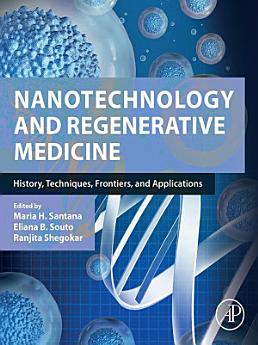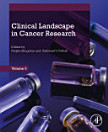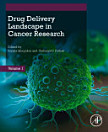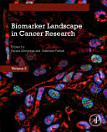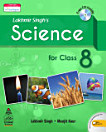Nanotechnology and Regenerative Medicine: History, Techniques, Frontiers, and Applications
About this ebook
About the author
Maria Helena Andrade Santana is a retired Full Professor in the Department of Materials Engineering at the School of Chemical Engineering, University of Campinas, Brazil. Maria Helena is graduated in Chemical Engineering from the University of Maringa, holds PhD. in Mechanical Engineering from the University of Campinas, Brazil, a postdoctoral in Chemical Engineering from the North Caroline State University, USA, and has a nonmedical degree from the American Academy of Regenerative Medicine (American Board of Regenerative Medicine- South America Chapter) (2016). She has extensive experience in multidisciplinary applications, specifically in fermentation processes, nanotechnology, and regenerative medicine of musculoskeletal systems, and is a member of the National Academy of Engineering, Brazil (2014-present). She received twice (2004 and 2015) the “Zeferino Vaz award for Scientific Productivity in Chemical Engineering and the Inventors award from the Innovation Agency (2010, 2019), both from the University of Campinas, Brazil.
Eliana B. Souto is Habil. Professor from the Department of Pharmaceutical Technology of the Faculty of Pharmacy of University of Porto. Prof. Souto graduated in Pharmaceutical Sciences from University of Coimbra (2000), is holder of a master’s in science degree in Pharmaceutical Technology from University of Porto (2002), and PhD in Pharmaceutical Nanotechnology and Biopharmaceutics from the Institut fuer Pharmazie der Freie Universitaet Berlin, Germany (2005). Her research lines include the design, development, and characterization of new drug delivery systems to overcome biological barriers. Prof. Souto serves as Associate Editor, member of the Editorial Board, and Reviewer of several international scientific journals and has published more than 500 works (original and review papers, books and book chapters) in the field of nanosciences and nanomedicine. Prof. Souto also acts as independent expert for several national, European and international funding agencies, and as consultant for pharmaceutical industry.
Ranjita Shegokar holds a Ph.D. degree in Pharmaceutical Technology from the SNDT University, India, and has been a postdoctoral researcher in the Department of Pharmaceutics, Biopharmaceutics and NutriCosmetics at the Free University of Berlin, Germany. Currently, she serves as Chief Scientific Officer (CSO) at Capnopharm GmbH, Germany. She has authored several research articles, book chapters, and presented her research in many national/international conferences. She has filed multiple patent applications in the area of drug delivery and targeting. Besides that, she has edited many trending books in the area of pharmaceutical nanotechnology and drug delivery aspects. For her research, she has received many prestigious national and international awards among them include recently received prestigious German Innovation Award 2022. Her areas of interest include polymeric nanoparticles, nanocrystals, lipid nanoparticles (SLNs/NLCs), nanoemulsions, cancer drug targeting and the role of excipients in delivery systems. (www.ranjitas.com)
